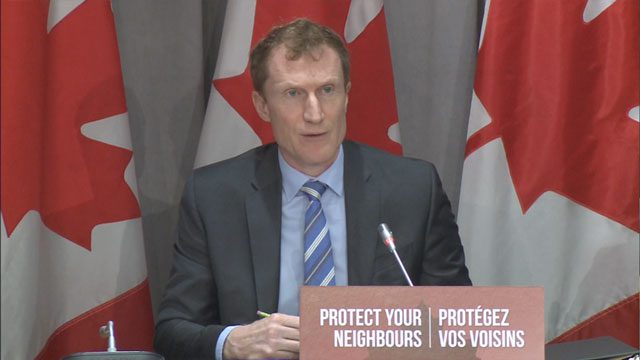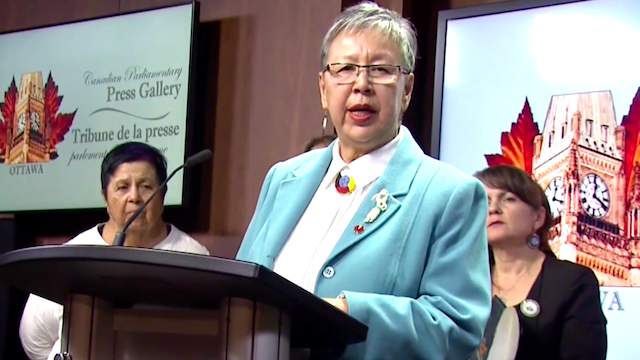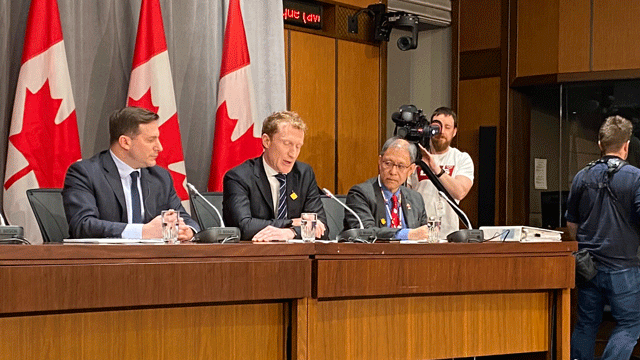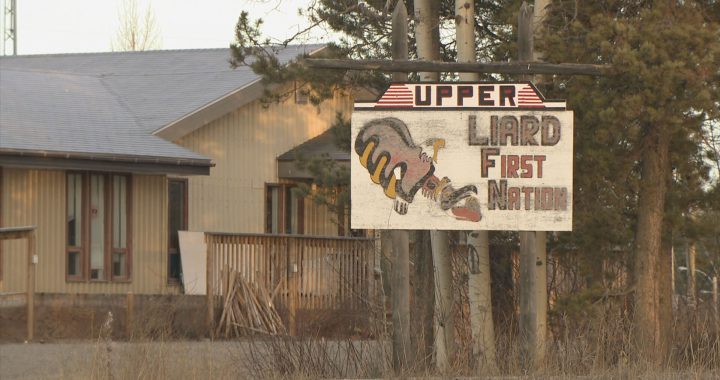
Her community, which is just west of Sudbury, Ont., ratified a custom election code which would allow members to vote online and stream the nomination meeting, which is not permitted under Indian Act voting laws.
But Ottawa hasn’t signed off on the new code. Nevertheless, Richer said they’re proceeding under the custom code with nominations leading up to the June elections.
“I get direction from my community and not the minister of Indigenous Services Canada (ISC), so we’re proceeding. It’s only going to be a difficulty if somebody challenges it,” she said.
The new First Nations Election Cancellation and Postponement Regulations (Prevention of Diseases) will “outline steps for the current Chiefs and Councils to make a decision to extend their term of office in order to mitigate the potential spread of COVID-19,” Vanessa Adams, press secretary to ISC Minister Marc Miller, said in an email.
Miller told APTN News letters along with copies of the regulations went out to First Nations Wednesday night.
But Sen. Lillian Dyck, who sent a letter to the government about community safety during elections, said the new regulations are “too little too late.”
While the federal government worked quickly to enact COVID-19 emergency relief measures, Dyck suggested Ottawa, instead of drawing up new temporary regulations, could have made legislative changes that give First Nations authority to postpone elections during emergencies.
“Why couldn’t they come up with something that would grant emergency measures for First Nations and actually pass it as an emergency law?”
“It isn’t going to be just COVID-19 on the horizon right now. It’s going to be flooding. It’s going to be forest fires,” she told APTN.
“Will these regulations then cover those same sorts of emergencies?”

(Sen. Lillian Dyck. Photo: APTN file.)
Miller replied that the new regulations apply only for a year, after which they will expire. First Nation governments can adopt a band council resolution to extend the term for six months, with the option to extend another six months afterward.
If pandemic conditions remain in place after a year, the government is prepared to re-enact the regulations or enact different iterations of them.
“Finding innovative solutions is something I’m very open to,” Miller said in response to the call for a lasting legislative remedy.
“But in this pandemic I just don’t have the luxury to look at those different scenarios – even though I would acknowledge they’re very highly desirable.”
The Conservative shadow minister for Indigenous Services responded positively to the news but said the regulations should have been implemented “weeks ago” to minimize the risk of a novel coronavirus outbreak in First Nation communities.
“As a result of the delay, my office now has been made aware of instances where election results are being questioned – leading to more uncertainty during this difficult time,” said Tory MP Gary Vidal in a statement to APTN.
Some communities felt pressured to hold their elections because they feared a governance gap would ensue after expiry of the current term, but Vidal refused to say which ones questioned results, saying they were raised with his office in confidence.
Others didn’t have the option to extend the current chief and council’s term when they decided to postpone elections.
Those who postponed within 30 days prior to the enactment of the regulations “do have the ability to consider that council extended and then proceed as if the decision had been taken under the rules,” Miller said.
Read more:
Feds dig into the Indian Act to allow band councils to extend term during pandemic
Voting in a time of pandemic: Why Shoal Lake 39 felt pressed to hold an election
Shoal Lake 39 voted on March 26 but raised concerns about community safety a week earlier.
In response, the community received a letter from Yves Denoncourt, acting director of Indigenous Governance Operations Directorate.
“It should be noted that the decision to postpone an election does not constitute an extension of the term of office. At the end of the mandate, a First Nation will find itself dealing with a governance gap,” Denoncourt wrote.
The missive included a list of safety precautions to be employed should the community hold the vote. The list included wiping down tables after every 5-10 voters, having 50 pens available (to be disinfected after use), or encouraging voters to bring their own.
Dyck’s letter called these remarks “completely insensitive and patronizing.”
“We know that First Nation communities are at a much greater risk for community transmission of disease,” she wrote.
“He ought to apologize for minimizing the risk of COVID-19 in First Nation communities.”
A day after Dyck sent her letter, Miller “recommended that First Nations do not go forward with upcoming elections,” tweeting that the government would work to ensure leadership continuity with communities that choose to postpone.

(Minister of Indigenous Services Marc Miller at a COVID-19 cabinet committee briefing. Photo: APTN file)
Dusting off the Indian Act
Although Dyck is calling for legislative change, ISC maintains that it doesn’t have the legal authority to postpone or cancel elections.
“The current legislative context does not give the Minister of Indigenous Services the authority to extend the terms of office for elected Chief and Councils under the Indian Act or First Nation Elections Act,” wrote Adams.
“However, the Minister may specifically implement regulations that provide the authority for Chiefs and Councils to make a decision to hold, postpone, or cancel their upcoming elections during a pandemic crisis.”
The minister explained that decisions to conduct or postpone have to come from the communities themselves.
“You can also imagine the situation where the minister of Indigenous Services imposes a solution that the community may not want. We encourage, we work with the community. If we truly believe in self-determination we have to respect the choices that are made inside the community.”
But for NDP MP Leah Gazan, the entire situation also reveals the need for stronger legislative action.
“This is demonstrative of the paternalistic imposition of the Indian Act on communities,” she said.
“I think that speaks back to the need to move away from the Indian Act and move forward – and for the government to keep their promise to see the full adoption and implementation of the UN Declaration on the Rights of Indigenous Peoples that does honour the human rights to make decisions about those kinds of matters on our own.”
Dyck expressed a similar sentiment.
“It’s still that kind of mentality that First Nations don’t know how to govern themselves, and still going back to the old Indian Act.”
Miller said he understood the “heavy undertones” associated with dusting off the Indian Act to make rules regarding First Nations, which is why the new regulations are “very narrowly tailored.”
But for Richer, the frustration grows because Ottawa hasn’t approved her community’s custom election code.
“It’s an example of how paternalistic and bureaucratic that ISC remains today that they can’t do this,” she said.










